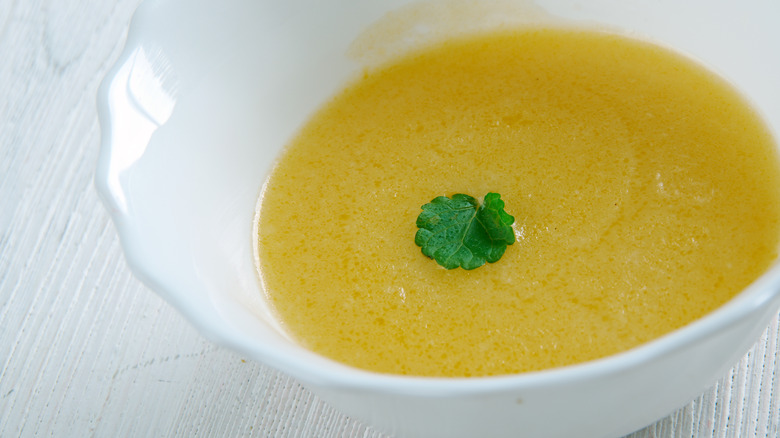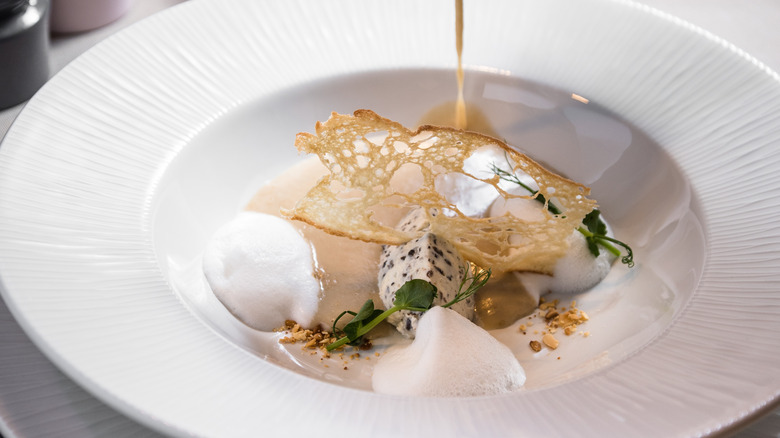The Royal Origins Of Velouté Sauce
French cuisine always seems to be the gold standard chefs hold their food to. Whether it is better than other cuisines is debatable. However, it did lay the foundation for many methods still used today. One of the most significant of these achievements is what is known as the "mother sauces." True to their name, this list of sauces like velouté and béchamel is the base from which many more complex sauces come. History remembers Auguste Escoffier, who put the five mother sauces into writing, but velouté has even more impressive origins.
The velvety sauce doesn't have a confirmed origin date but is believed to have been developed during the reign of King Louis XIV. Just one on a long list of achievements for that royal court, the velouté sauce would stand the test of time, along with the other mother sauces. The first recorded velouté recipe was printed in Antoine Beauvilliers' book, "The Art of French Cooking," published in 1814. A concoction of meat stock and blond roux, it is an important component of fine dining.
Velouté has mysterious origins
By virtue of being invented so long ago, little is known about the origin of the velouté sauce. The mother sauce first appeared in print in "The Art of French Cooking," but its exact creation remains mysterious. Velouté's beginnings are complicated further by the fact that the five mother sauces were not all developed simultaneously. No one person created these sauces, so tracing their history becomes a little more complicated. Only when Auguste Escoffier categorized these sauces years later did the mother sauces become unified.
There is some information that we do have, however. Historians understand that Antoine Beauvilliers had humble beginnings in the kitchen of the French court. From there, he rose through the ranks to eventually write (maybe) the first velouté recipe. Funnily enough, that is not what he was most known for. Historians remember Beauvilliers as the creative mind behind one of the world's first grand restaurants. While society paid to eat in establishments before, Beauvilliers was part of the culture that encouraged patrons to not just eat to survive, but eat to enjoy their food. His reputation was one of luxury, as he catered to the upper echelon of society. No doubt this reputation started because of his proximity to the royal family.
Other royal connections in French cuisine
Antoine Beauvilliers is one of the famous names credited for velouté, but he is not alone. While some consider his book "The Art of French Cooking" to contain the first instance of velouté, there are other entries to stretch back further. Famous chef François Pierre La Varenne has connections to the mother sauces due to his cookbook, "Le Cuisinier François." La Varenne's 1651 cookbook contains a version of the velouté sauce that would later appear in Beauvillers' book. To this day, it is unclear exactly how far back the velouté goes. What we can surmise is that it originated in French cuisine centuries ago.
Like Beavilliers, La Varenne found himself adjacent to the royal family. La Varenne worked as a cook in his mid-20s for Marquis d'Uxelles, a nobleman of the time. It was during this service that he published his famous book and presumably learned the mother sauce techniques. His time with the Marquis was so foundational that he dedicated "Le Cuisinier François" to his master. The specifics of velouté's origins will perhaps always be shrouded in mystery, but we do know how fundamental the sauce is to French cooking.


